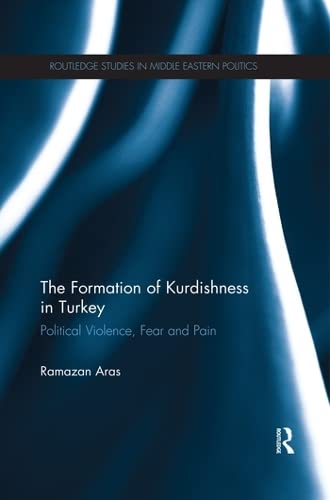

Most ebook files are in PDF format, so you can easily read them using various software such as Foxit Reader or directly on the Google Chrome browser.
Some ebook files are released by publishers in other formats such as .awz, .mobi, .epub, .fb2, etc. You may need to install specific software to read these formats on mobile/PC, such as Calibre.
Please read the tutorial at this link: https://ebookbell.com/faq
We offer FREE conversion to the popular formats you request; however, this may take some time. Therefore, right after payment, please email us, and we will try to provide the service as quickly as possible.
For some exceptional file formats or broken links (if any), please refrain from opening any disputes. Instead, email us first, and we will try to assist within a maximum of 6 hours.
EbookBell Team

4.7
96 reviewsThe Formation of Kurdishness in Turkey examines political violence, the politics of fear and the Kurdish experience of pain through an analysis of life stories, personal narratives and testimonies of Kurdish subjects in contemporary Turkey. It traces the physical and psychological impacts of the war between the state security forces and the PKK (Kurdistan Workers’ Party) guerrillas in the last three decades, in Kurdish populated areas in the south-eastern part of Turkey.
Focusing on the instrumentalization of violence, the ensuing and manufactured culture of fear, gendered experiences of state violence, pain, incarceration, and corporeal punishment, Ramazan Aras argues that these phenomena have shaped contemporary Kurdish history and memory. Analysing occurrences of various forms of protracted state violence and fear not only as personal and differential markers experienced by individuals, but also as communally-felt phenomena which have engendered collective suffering, this book asserts that these traumatic experiences have marked the social body and produced a prevailing narrative of Kurdishness.
Providing an anthropological study of political violence, fear, and pain amongst the Kurdish community in Turkey, this book will be welcomed by students and scholars of Kurdish Studies, Middle East Studies and Anthropology.